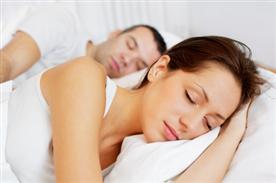 Snoring used to be known as more of an annoyance rather than a danger to your physical and oral health.
Snoring used to be known as more of an annoyance rather than a danger to your physical and oral health.
Now, we understand that there is actually a risk associated with snoring, you could have sleep apnea. Sleep apnea is a potentially harmful sleep disorder during which people stop breathing, throughout the entire night.
Obstructive sleep apnea (OSA) is the most common types of sleep apnea, and occurs when the muscles in the back of the throat collapse, causing the opening through which air passes to disappear. Certain people are more likely to experience sleep apnea than others. Who are they?
Obesity – this is one of the most indicative risk factor. Obese adults are seven times more likely to develop sleep apnea than their normal-weight adults. Excess weight adds to the pressure on the airway making the diameter of the opening even smaller than it already is.
Neck Circumference – obese people and professional athletes have larger-than-average necks and this can cause sleep apnea.
Age – sleep apnea is more common in older people, although people of any age can develop it. As we age we lose tone and elasticity. With that natural softening of the tissue in the throat, there's higher likelihood of collapse.
Family History – while there is no genetic predisposition to developing sleep apnea, you can inherit certain aspects of your physical makeup that increase sleep apnea risk like a narrow jaw.
Alcohol Use – as a muscle relaxant, alcohol too close to bedtime can lead to episodes of sleep apnea. Alcohol can also lengthen the duration of apnea episodes.
Race - Sleep apnea risk and severity vary by race.
Smoking - smokers are 2.5 times more likely to have sleep apnea nonsmokers. Smoking is an irritant and can cause airway tissue to swell.
Gender - middle-aged men are twice as likely to have sleep apnea than women.
Sleep apnea can be treated with CPAP machines and oral devices. Both have the place, but for patients that are fed up with CPAP there is an alternative to that unattractive tight mask, bulky, and loud machine. Oral devices can treat mild to moderate sleep apnea more comfortably than a CPAP machine.
Oral appliances for sleep apnea are placed in the mouth and are worn like an orthodontic appliance or sports mouth protector. No machines and they are virtually unseen. For treatment options for sleep apnea, contact Oyster Point Dental.
Huffington Post





